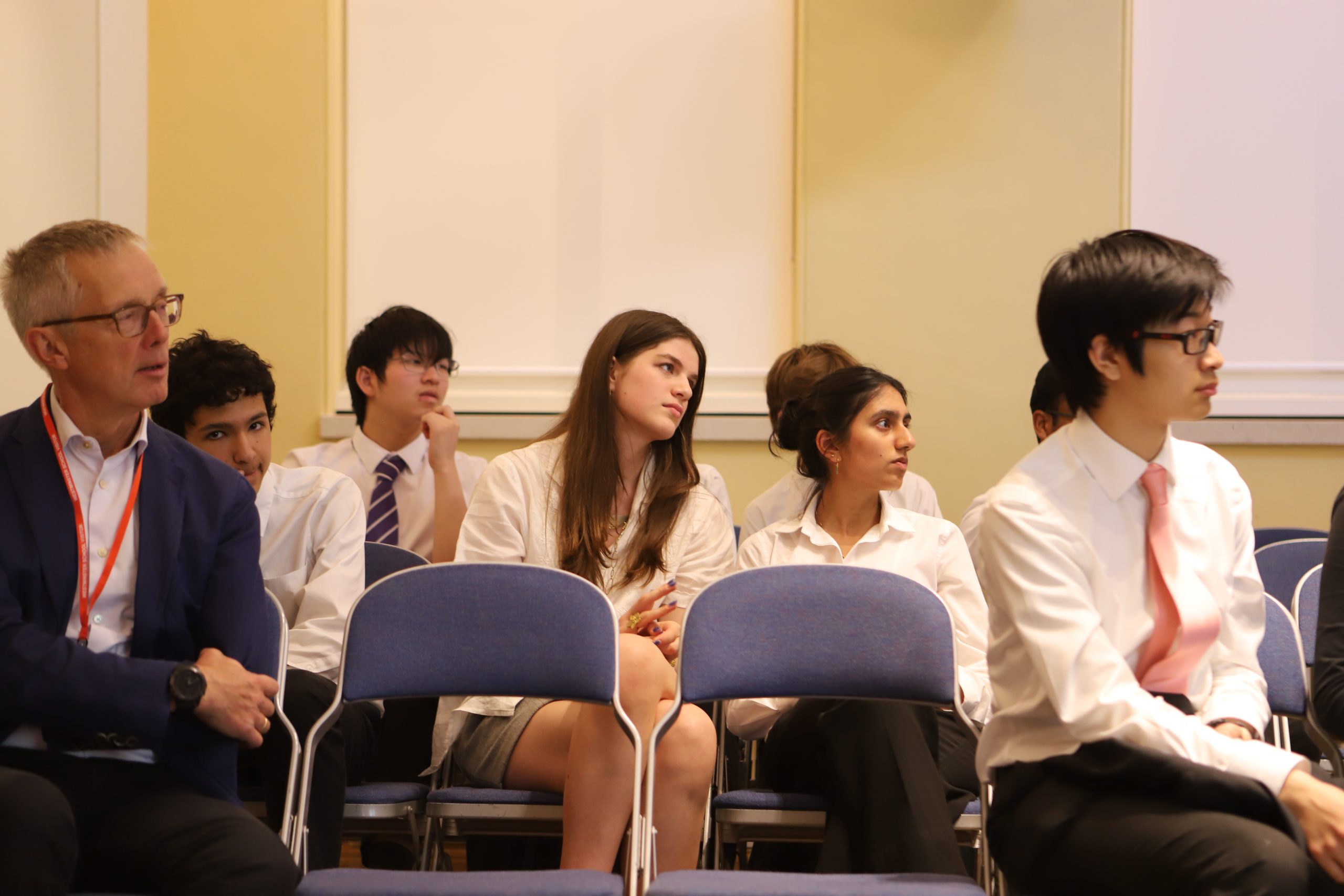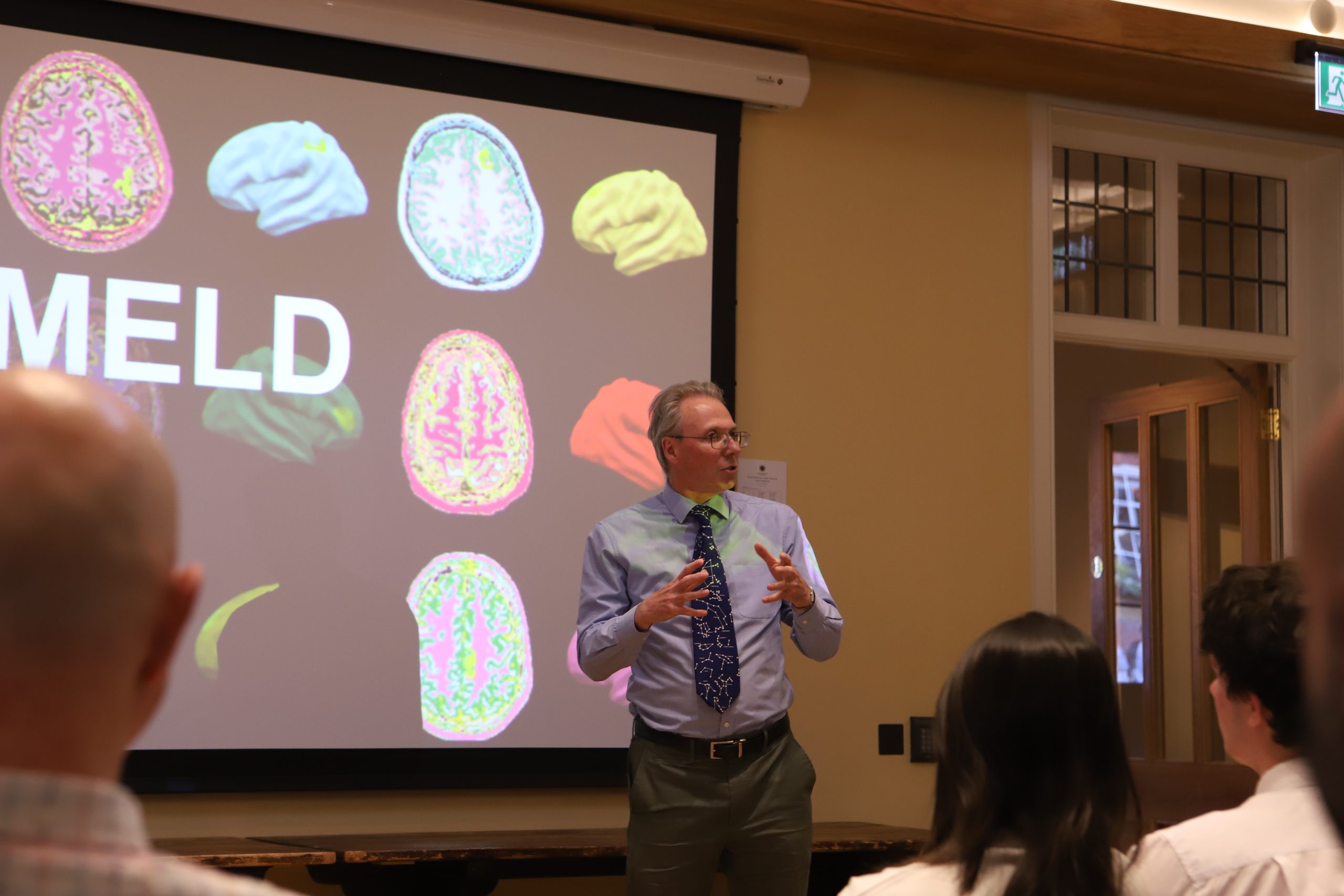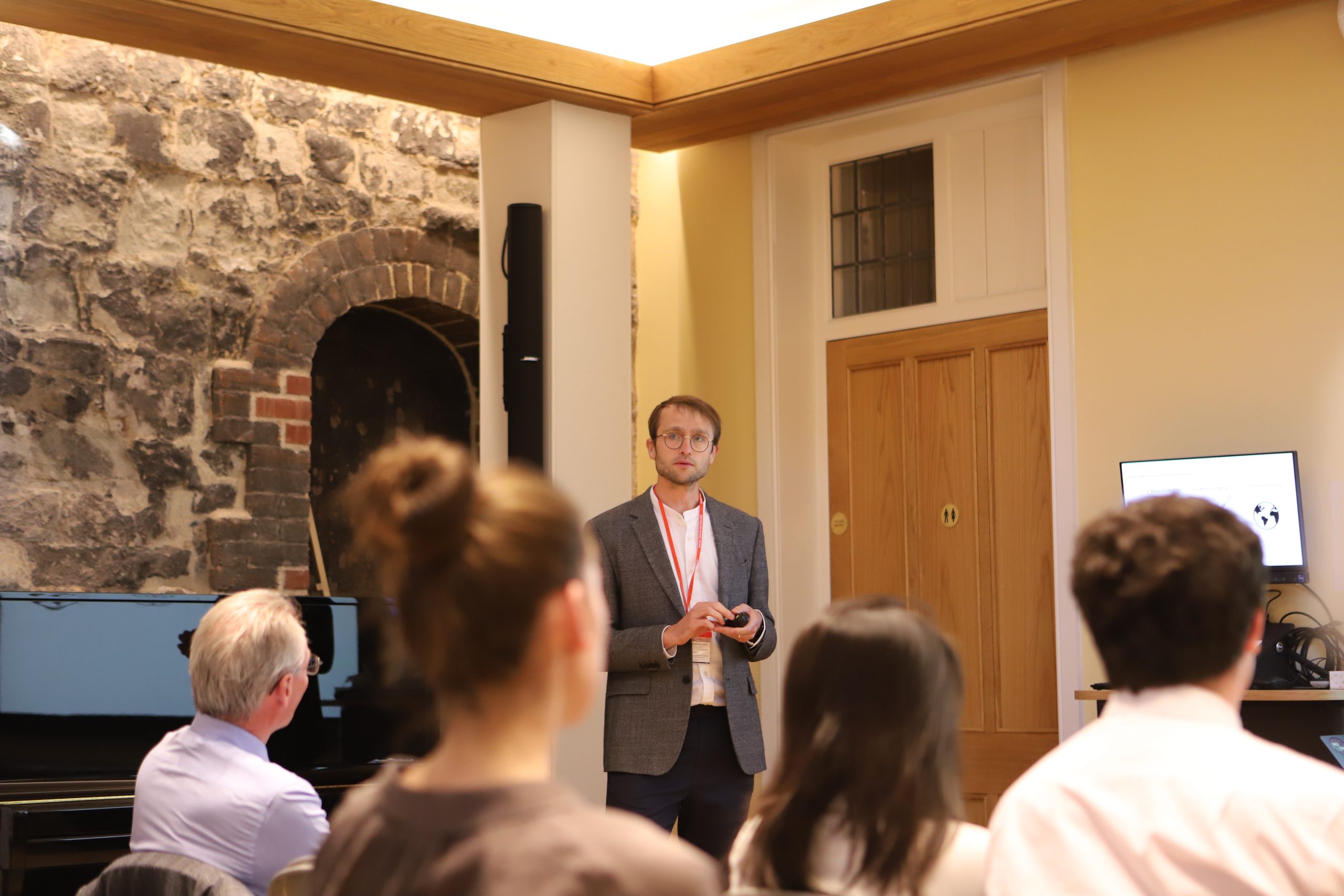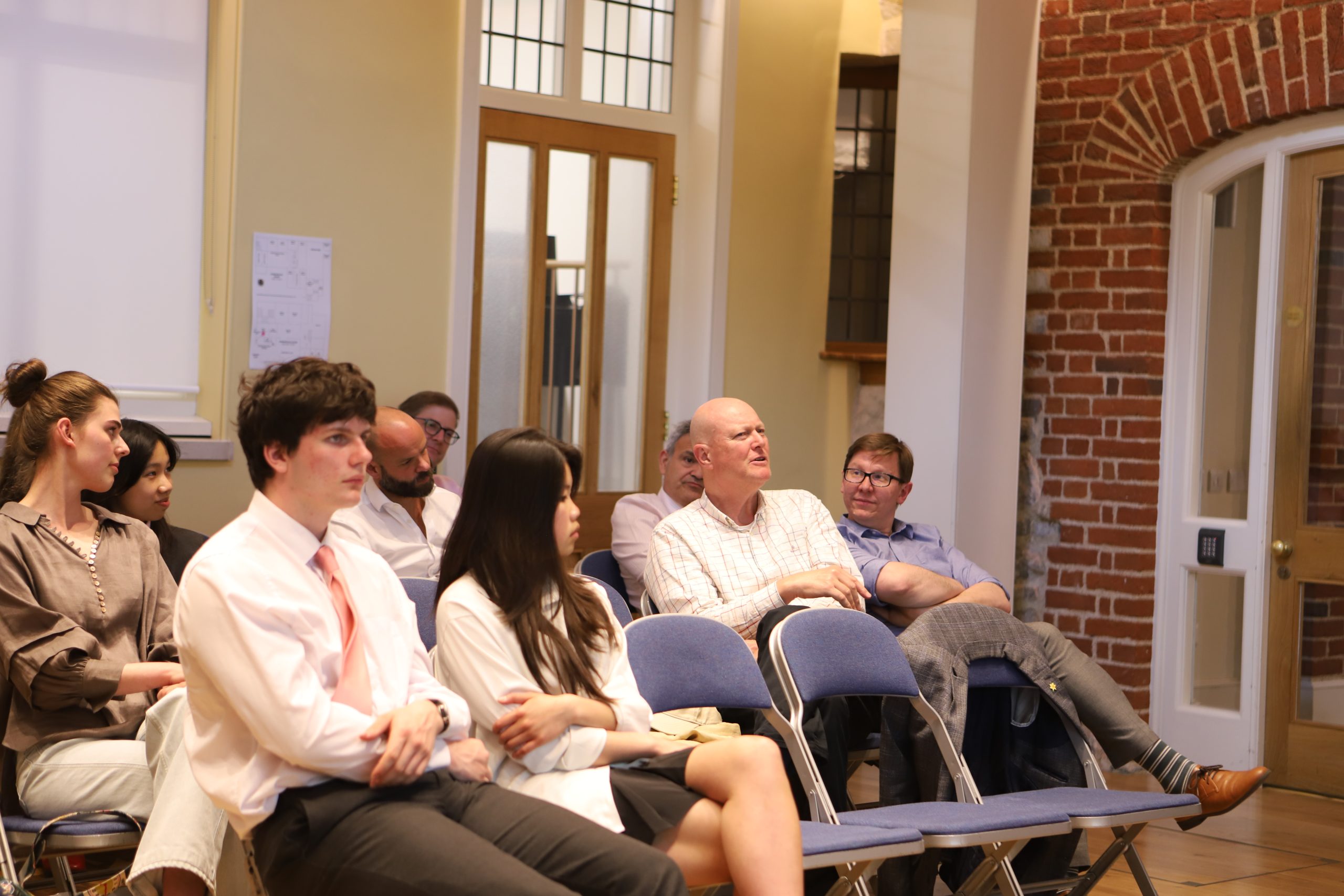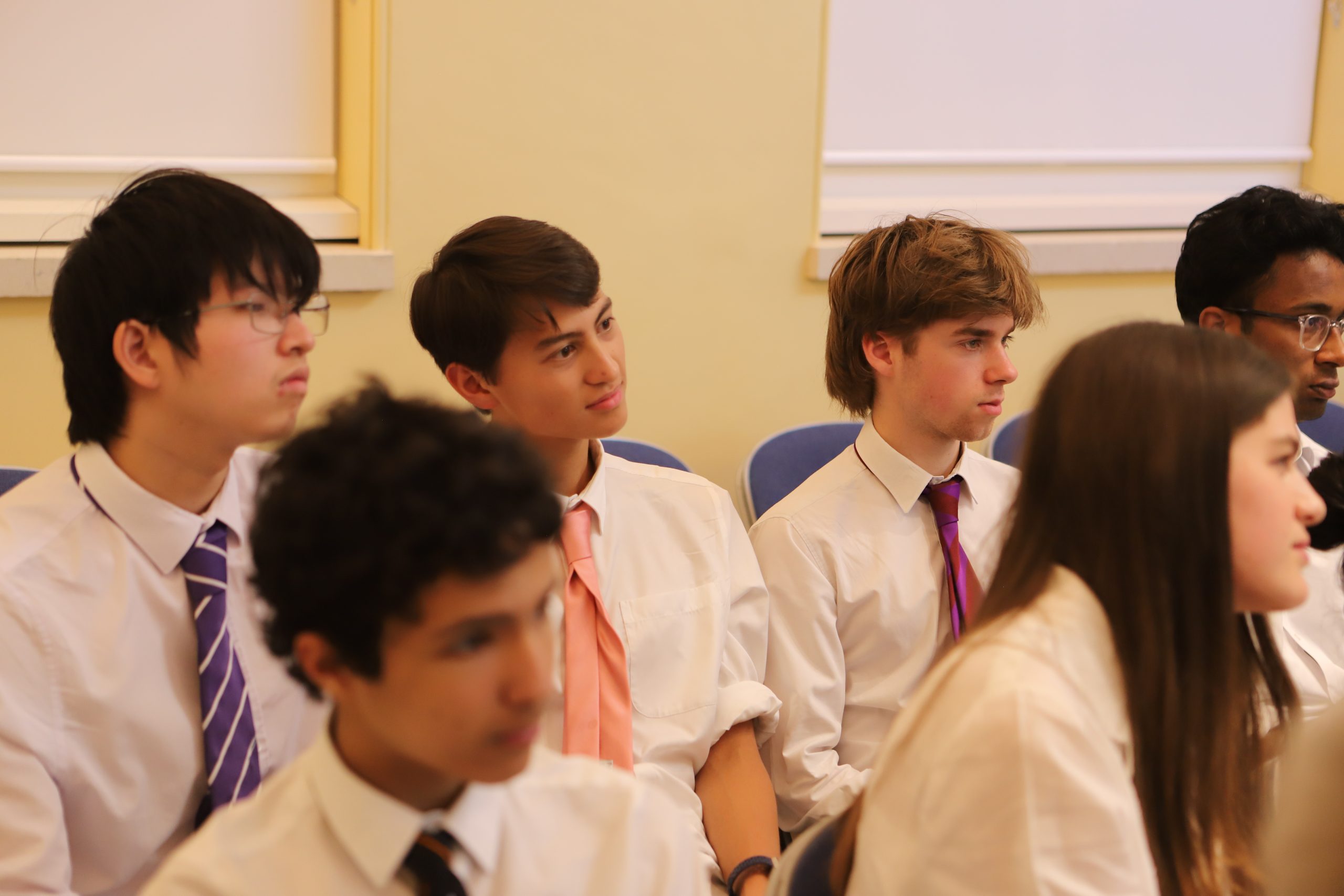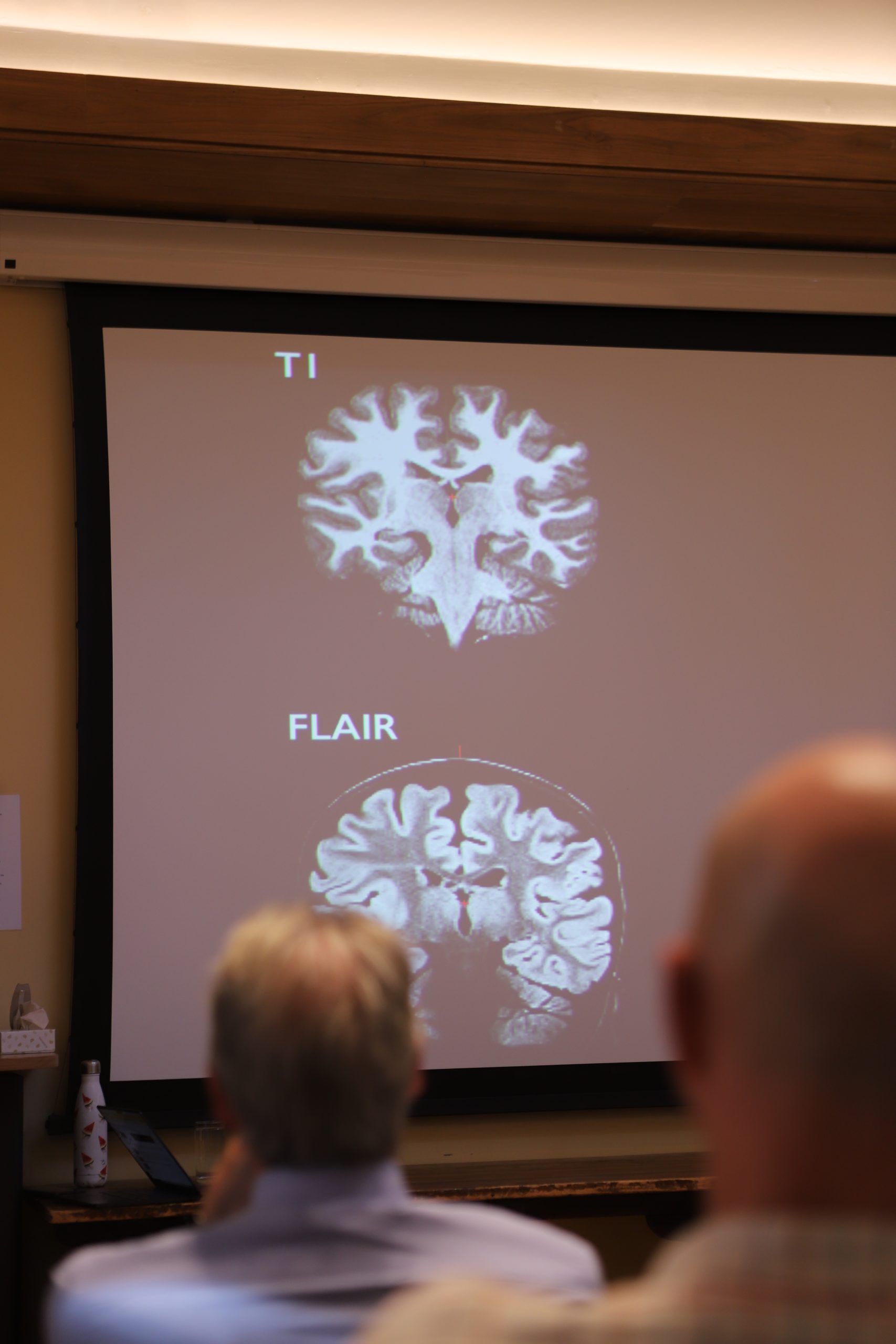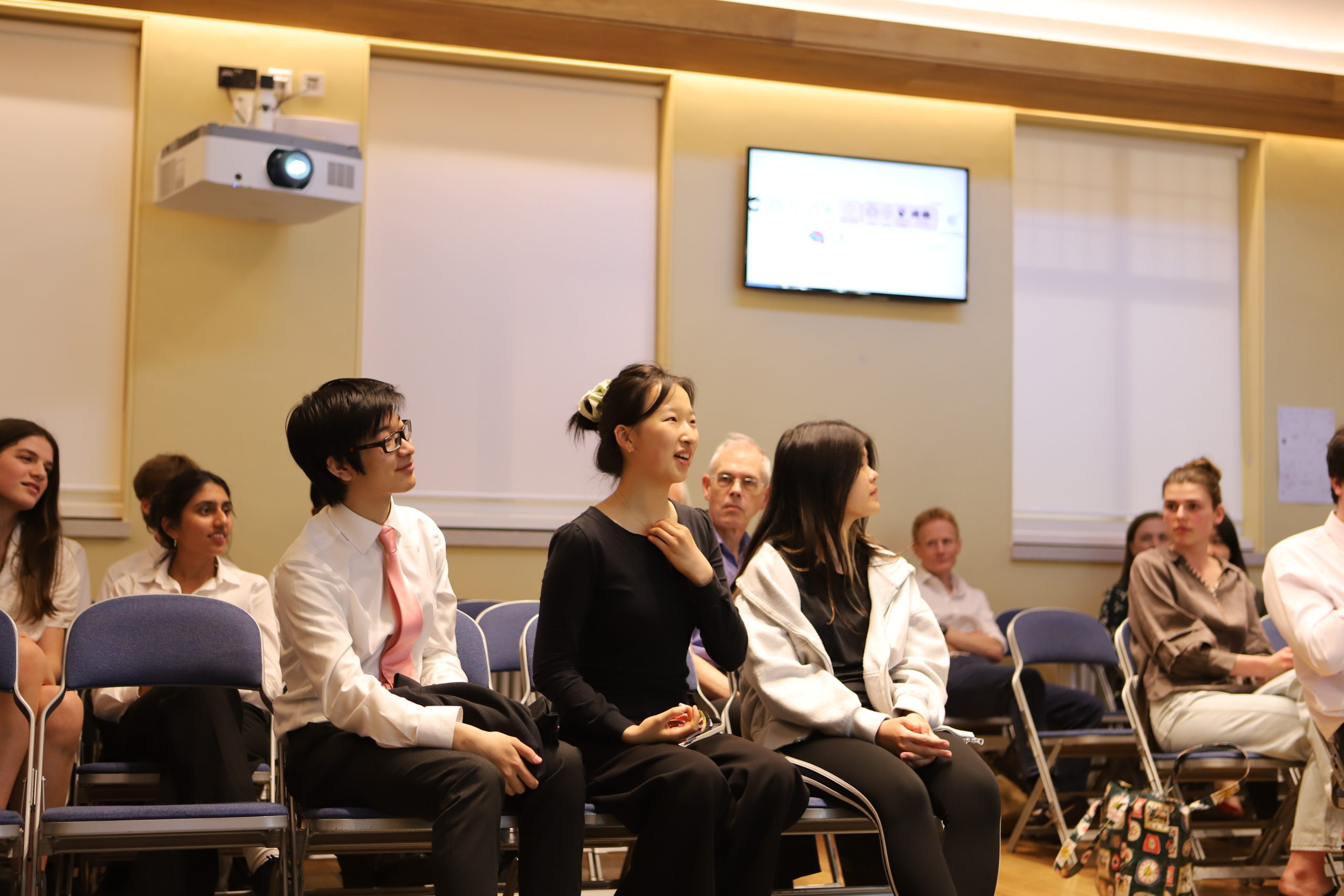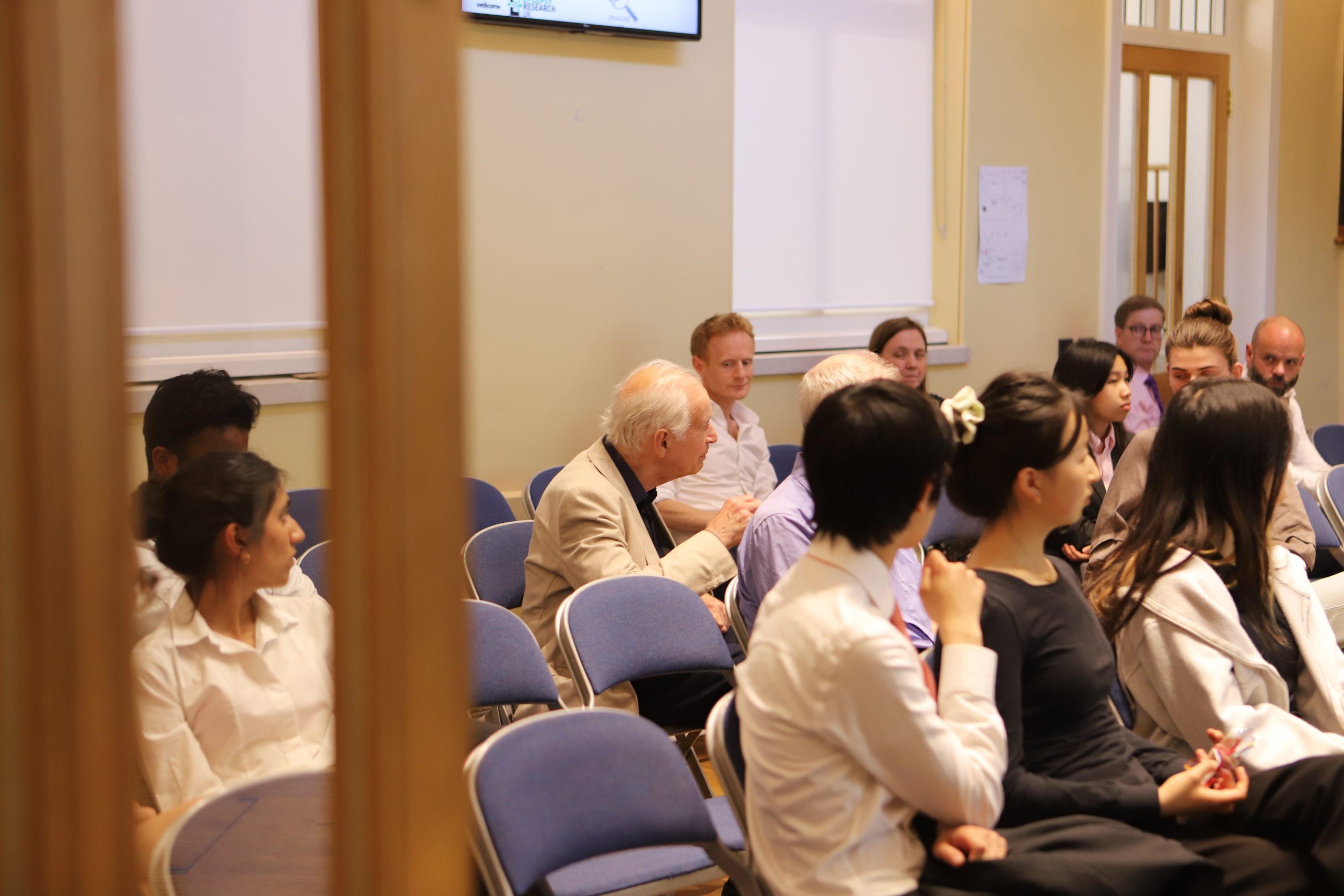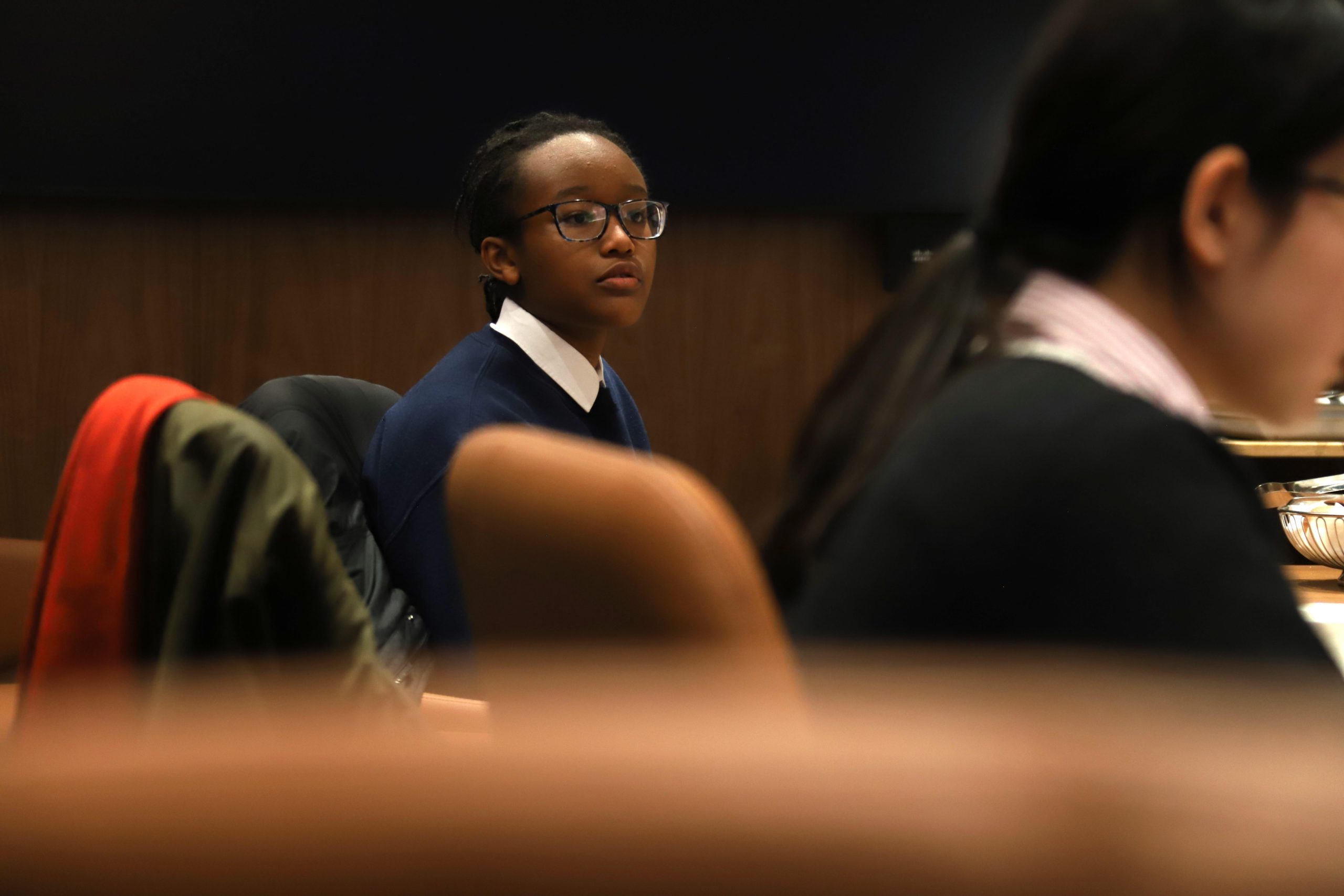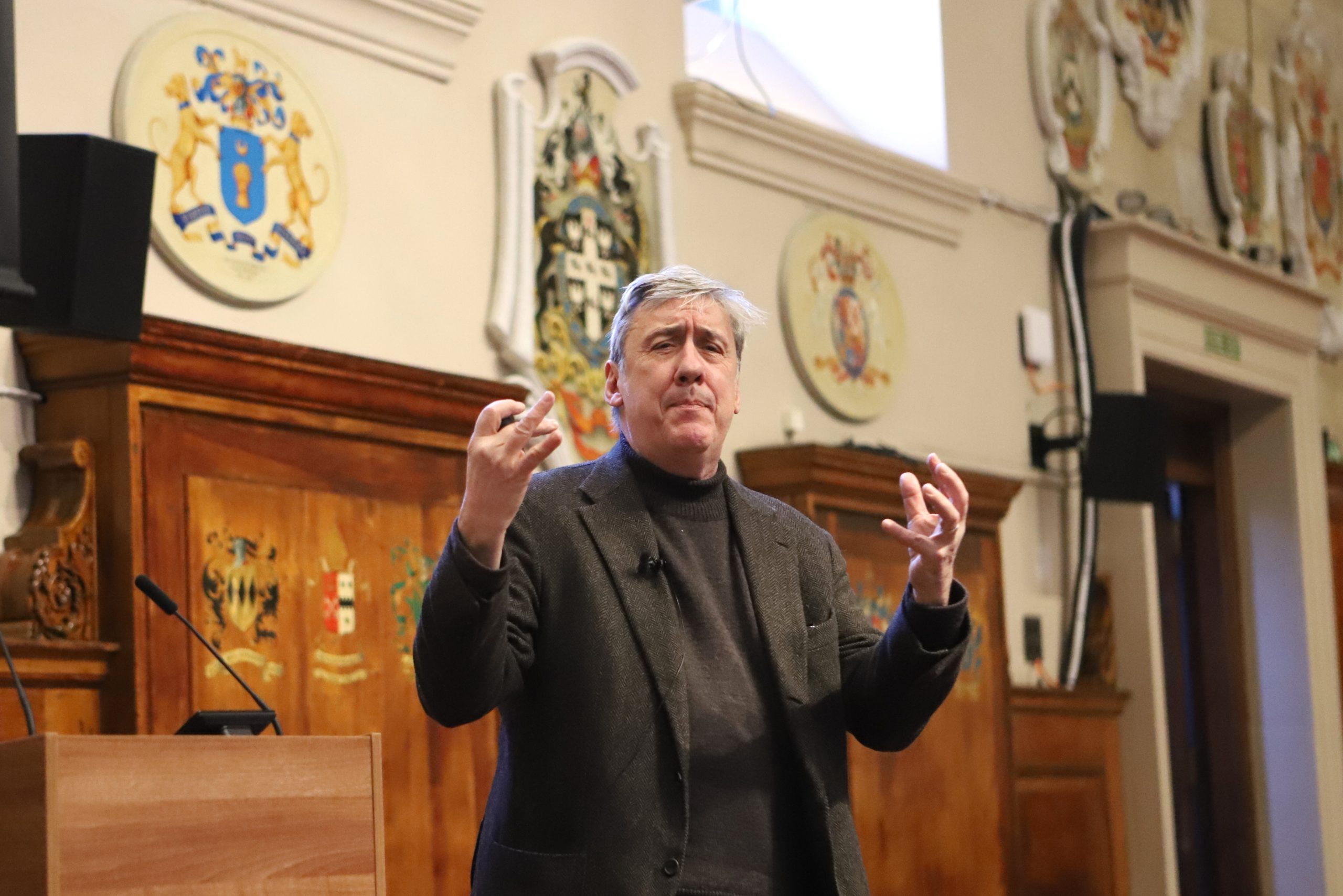Dr Konrad Wagstyl OW dived deep into how artificial intelligence can transform the lives of young epilepsy sufferers, returning to Westminster to deliver the Tizard Discourse
At the annual event in May, Konrad spoke to pupils – some the next generation of research scientists and medics – with stories of children whose epilepsy had caused them to experience up to 70 seizures a day, whose parents had lost hope, and how the AI tool that he and his wife, Dr Sophie Adler developed helped put an end to the suffering.
Konrad and Sophie co-lead The Multi-centre Epilepsy Lesion Detection (MELD) project, an international collaboration dedicated to diagnosing invisible brain abnormalities in patients with drug-resistant epilepsy. The pair, who hold MB PhDs from Cambridge and UCL and split their research time between KCL and UCL, have used their knowledge of neurology and technology to develop an algorithm that can automatically analyse MRI scans, particularly in children and adults who suffer from seizures, to identify lesions in the brain.
Konrad explained that by collating MRI data from 1,185 participants from 23 epilepsy centres around the world, the team has been able to train the ‘MELD Graph’ to detect subtle brain abnormalities that might otherwise go undetected by radiologists.
It can often take years to identify the lesions that cause epilepsy, but MELD’s software can accelerate the process, helping radiologists to hone their searches and to make more informed decisions, meaning that patients might receive surgical treatment quicker, and staff pressures and the costs incurred by organisations worldwide, organisations such as the NHS, can be reduced.
Drawing on the work of radiologists, Konrad, an enthusiastic educator, challenged his audience to examine brain scans and spot potential lesions, quizzing them about their thinking. He took a range of questions from the room: whether MELD could help with other areas in medicine; how surgeons operate on lesions in the brain; and on how parents trust the MELD model to help make important decisions about surgery on their children.
The discourse served to prove that combining AI with academic thinking can lead to significant scientific advancement, and change lives.
And it got pupils thinking about the multidisciplinary nature of careers in STEM and the possibilities that might lie ahead. Eva (Remove, PP) said she “came for the AI, and left with a new outlook on careers in science. A career in stem doesn’t have to stick to a script, and that’s oddly comforting.”
Westminster Deputy Head, Ed Coward said: “This Tizard Discourse showcased how a multi-faceted, complex scientific topic can be meaningfully pitched to a wider audience without dilution of the core science. Pupils were able to appreciate the underlying complexities of multi-centre epilepsy lesion detection (MELD) through MRI scans, and were eagerly engaged in a discussion of the role that technology plays in supporting clinicians. Not lost on the pupils was an understanding of the moral, as well as technological, impact of AI use and their questions during the discourse highlighted a mature appreciation of this emergent field of research. From ensuing classroom conversations, it is clear that many found the talk energising and could immediately appreciate its wider implications. This was scientific conversation at its best: open, collaborative and stimulating.”
The Tizard Discourse provides an interdisciplinary event at which members of the Westminster School community can hear about the research and interests of an individual, typically a former pupil. The series is run by Astronomer-in-Residence, Dr Kevin Walsh.
Related News Stories

